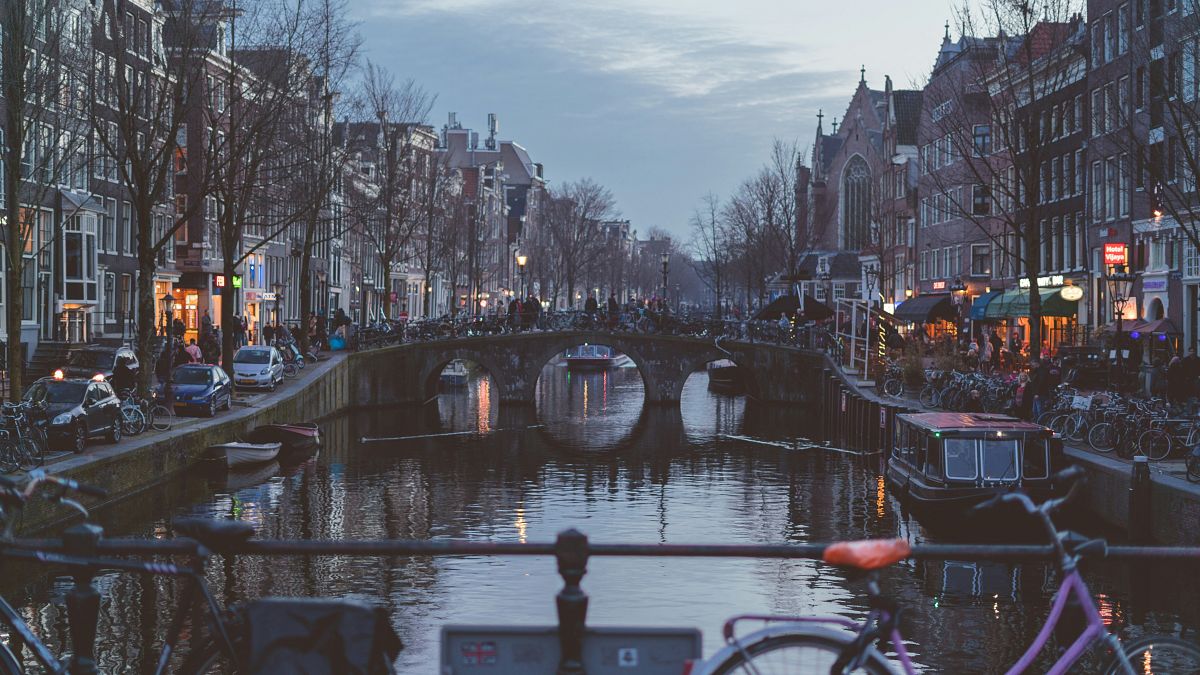Euronews Business takes a look at where in Europe people have the best work-sleep balance and which countries are lagging behind when it comes to getting high-quality shut-eye.
With several European countries trying out four-day working weeks in the past few months, the benefits of this new working model have been in the limelight recently. Along with its potential productivity advantages, a four-day work week has also been found to have a positive impact on sleep.
A recent study by MattressNextDay has found that employees who work four days a week, instead of the more common five days a week, are able to sleep one hour extra per night.
On average, Europeans manage to sleep approximately seven hours a night, although this number varies depending on factors such as work-life balance, air quality and the amount of daylight they get.
The research studied data from 36 European countries, in order to find which ones had the best and worst work-sleep balance. The Netherlands emerged as one of the countries with the best work-sleep balance, while Turkey was one of the worst.
Martin Seeley, the chief executive officer (CEO) of MattressNextDay, told Euronews: "Balancing work and sleep is key to staying productive and healthy. It's tempting to push through and sacrifice sleep for work, but the reality is that without enough rest, our focus, creativity and decision-making suffer.
"Quality sleep helps us recharge, so we can perform our best and handle the challenges of the day. Finding that balance isn't just about managing your schedule - it's about understanding that good sleep is essential for long-term success and well-being."
The Netherlands bags first spot for work-sleep balance
The Netherlands was at the top of the list for the best work-sleep balance in Europe. According to a 2016 Science Advances study, the Dutch sleep for eight hours and five minutes on average. The country also has one of the shortest work weeks in Europe, with an average of 32.2 working hours.
Both of these factors have resulted in the Netherlands having one of the highest job satisfaction and confidence rates in the world, exceeded only by Finland, Denmark and Iceland, according to a recent report by advisory and analytics firm Gallup.
This high job satisfaction rate, in turn, can help companies retain employees, thereby saving costs on rehiring and retraining.
Employees in the Netherlands were also one of the least stressed in the world, according to the Gallup report, whereas employees in Greece, Malta and Cyprus were some of the most stressed.
One habit which seems to be helping the Dutch get such quality sleep is drinking their morning coffee outside, allowing them to soak up as much early sunlight as possible. This practice can help regulate the circadian rhythm and promote better sleep and productivity.
Austria also has a very good work-sleep balance, with employees working 33.6 hours a week on average. According to MedUni Wien, Austrian people sleep between seven and eight hours on average.
Not only are working weeks relatively short in Austria, but overtime is also considerably limited, with several companies offering flexible working hours. Strong government policies and labour laws, as well several reduced working options, such as job sharing also help provide new parents, families and other people with the support they may need.
Norwegians benefit from outdoor life
Similarly, Norway boasts a commendable work-sleep balance, with employees working 33.9 hour weeks on average. Norwegians also value getting as much fresh air and doing a range of outdoor activities such as skiing, hiking and kayaking. This concept even has a name - Friluftsliv, translated as "free-air life".
The abundance of outdoor activities also helps promote better health and sleep. It also decreases stress and has mood-enhancing benefits, as well as the potential to help with health issues such as high blood pressure and low vitamin D levels.
Bedrooms are kept cool in Norway, also contributing to better sleep, with couples often using separate blankets or duvets to cut down on sleep disruptions too. Norway's sauna culture helps a good deal in achieving deeper, more quality sleep as well.
These work-sleep balance results can be very useful for businesses, encouraging them to implement policies which support a better work-life balance for employees.
Turkey and Serbia among countries lacking work-sleep balance
Turkey, Serbia and Montenegro are among the countries with the worst work-sleep balances. That can not only affect productivity at work, but it can also mean bad news for individual well-being.
Employees in Turkey work the most hours in Europe, with the average work week being 44.2 hours, which can make it more difficult to get enough rest and relaxation.
A 2021 ScienceDirect study found that, during the pandemic, psychological distress was one of the main sleep disruptors for Turkish people. This was found to be higher in men, as well as married people, and people with children.
People working in the healthcare sector, as well as those who had been laid off and people with a low education level were more at risk of psychological distress too, thus affecting sleep. The number of people with sleep disorders is also significantly high in Turkey, further leading to disturbed sleep.
Turkey's current unstable economic situation exacerbates this as well. Sky-high inflation, soaring interest rates, high unemployment and an almost unaffordable housing market mean that employees often have to work longer hours and more jobs to be able to afford necessities.
Perhaps, unsurprisingly, job satisfaction in Turkey is only 61% and has been falling recently, with productivity also falling behind.
Breaking the stereotype of "lazy Montenegrins", Montenegro had the second-longest working week in Europe, with an average of 43.4 hours. One of the reasons for this could be because of the country's Balkan-influenced work culture, which values seniority and hierarchical structures.
As such, it may be hard for Montenegrin employees to be able to draw and stick to healthy boundaries regarding work-life balance, while dealing with senior employees and managers. This may include having difficulty saying no to overtime, working on holidays and excess work outside of job specifications. As a result, sleep and downtime may often take a backseat, leading to a poor work-sleep balance.
However, the country has been trying to improve this situation recently, announcing in April that it would be reducing work days by one hour, in an attempt to promote employee productivity and loyalty. In turn, this move is also expected to boost employer earnings and revenues for the country.
Serbia also had a relatively long work week at 41.7 hours. Like Turkish ones, Serbian employees also experienced significantly disturbed sleep during the pandemic. A 2022 study by the National Library of Medicine estimated that approximately half of young West Balkan adults had impaired sleep patterns during the third wave of the pandemic. Women were more likely to be affected.
Issues such as depression and obstructive sleep apnea were also reasonably common amongst Serbs.
According to a 2022 health survey by Serbian pharmaceutical company Hemofarm, 31% of Serbs say that they have trouble sleeping because of bad thoughts and fear. Some 34% also revealed that everyday worries made it difficult for them to sleep.
Apart from the impact on productivity, longer working weeks can also cause a rise in the risk of health problems such as high blood pressure, depression and diabetes.
As such, companies with longer working weeks may want to consider options such as wellness programs and flexible working in order to try and ease employee stress.
What impacts good sleep?
Several factors can affect good sleep, such as the room environment and temperature, with cooler and darker rooms promoting deeper sleep. Winding down technology use about an hour before bed time, as well as using an alarm clock instead of a phone alarm could help too.
Similarly, avoiding too much nicotine, caffeine and alcohol before sleeping can be helpful.
However, one of the most basic and yet most important factors for good sleep often gets overlooked, which is choosing the right mattress and pillow for you.
Regarding this, Seeley told Euronews: "Choosing the right mattress and pillow is essential for achieving a good night's sleep, which directly impacts our overall health and well-being.
"While many people focus on selecting the perfect mattress, it's equally important to find the right pillow that suits your sleeping style. The right pillow can make all the difference by providing proper support for your head, neck and spine, reducing the risk of discomfort and pain.
"With the wide range of options available today, from memory foam to hypoallergenic pillows, it's easier than ever to find a solution tailored to your specific needs, ensuring you wake up feeling refreshed and ready for the day ahead."














